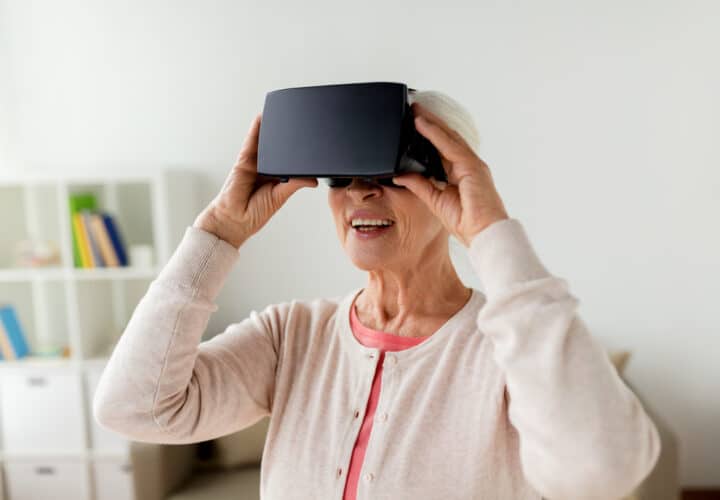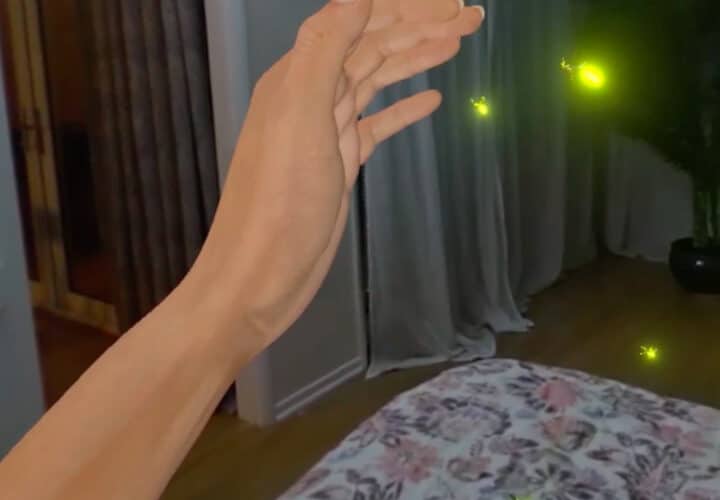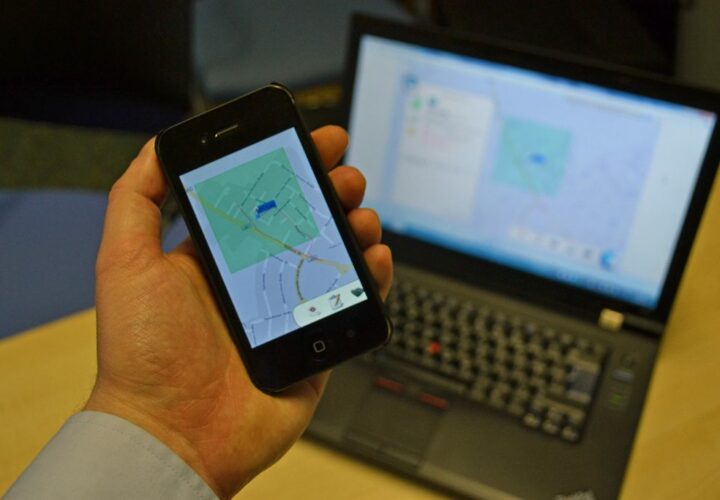A tiny study in the UK experiments with VR as a way of helping people living with dementia tap into past memories.
Many people think of virtual and augmented reality as popular forms of entertainment — but these technologies are becoming more central to healthcare, now a rapidly developing field with companies specializing in sectors from surgical training to neurological care. VR has also been used to help dementia patients recall memories. Researchers are diving into how VR might be able to improve the lives of people with Alzheimer’s and other types of dementia — and support their caregivers.
How virtual reality therapy may benefit people with Alzheimer’s and other types of dementia
One small study from 2019, from the University of Kent in the UK, involved just eight patients between the ages of 41 and 88, living with various types of dementia, including Alzheimer’s disease and Huntington’s disease. The study’s participants used a virtual reality headset to visit one of five virtual environments – a cathedral, a countryside, a forest, a sandy beach. and a rocky beach. Over the course of 16 sessions, patients were monitored and feedback was gathered from patients and their caregivers.
The patients chose which environment they would visit each time. Some explored several different locales within a single session. Others returned to the same place over and over again. Among the chief findings: The new stimulation provided by the virtual reality tours helped dementia patients tap into old memories.
What the researchers found was that exposing people with dementia to virtual reality environments helped them recall old memories, reduced aggression and improved their interactions with caregivers. According to the researchers, recalling buried memories gave participants positive mental stimulation and helped the caregivers learn more about their lives before. This, the caregivers said, improved social interactions between them and their patients.
“VR can clearly have positive benefits for patients with dementia, their families, and caregivers. It provides a richer and more satisfying quality of life than is otherwise available, with many positive outcomes,” explains Dr. Jim Ang, PhD, who was involved in the study.
One study participant with dementia referred to the VR event as “brilliant,” and enjoyed reminiscing about the experience. He was also inspired to draw a seascape in an art class several weeks later. The researchers suggest this may show a correlation between VR and a positive mood and motivation to engage in the art class.
Because the study was small, Dr. Ang points out that larger studies are needed to validate the results, but that the early findings are promising for people with dementia. As virtual reality videos become easier to produce, the virtual environments could be customized for individual Alzheimer’s patients, with virtual visits to places, such as their home or favorite place, added the researchers.
Updated April 3, 2023: This article from May 10, 2019 was updated with new information to help our readers.







This article above was fr 2019. I am willing to rent or buy a VR headset for my mom who has moderate dementia and increasing agitation. Pls help us get one of this devices, Thank you very much.
Hello, I’m interested in enrolling my uncle in any VIRTUAL REALITY program to aide him with his dementia and other issues with his mental and physical health.